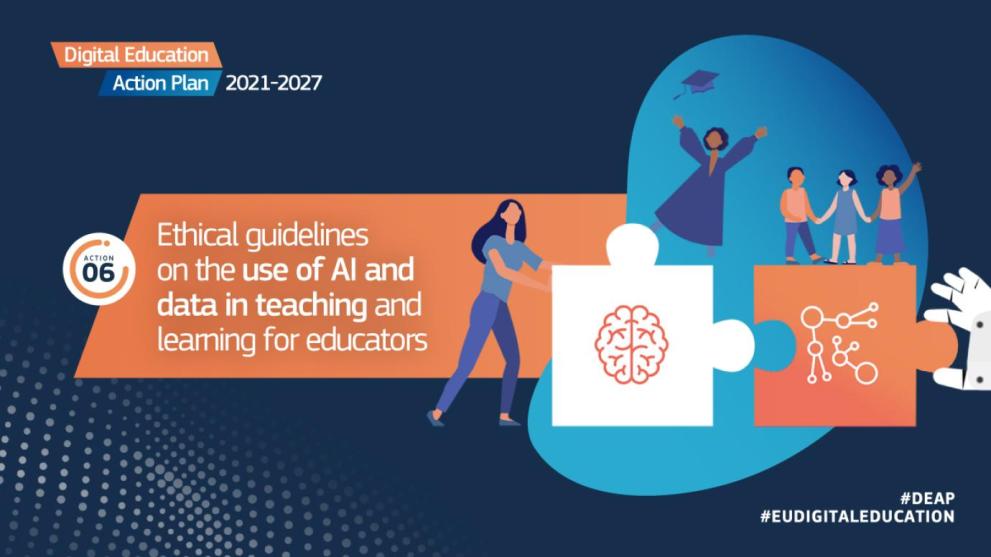
The Directorate-General for Education, Youth, Sport and Culture (DG EAC) published its ‘Ethical guidelines on the use of artificial intelligence (AI) and data in teaching and learning for educators’. This document address how AI is used in schools, with the objective to support teachers and students in their teaching and learning, and to support administrative tasks.
"Artificial intelligence has a great potential to transform education and training for students, teachers and school staff. It can help students with learning difficulties and support teachers through individualised learning. But the use of AI and data comes with privacy, security and safety risks, especially when it involves our young people. Therefore, I am pleased that these Guidelines will help ensure that these risks are being considered and our children can be kept safe and protected."
Commissioner Mariya Gabriel
The guidelines are an integral part of the Commission's Digital Education Action Plan 2021-2027. For its preparation, the Commission has been setting out a clear vision on a trustworthy AI in Europe, based on excellence and trust.
For that purpose, the Glossary of human-centric artificial intelligence, published by the JRC within the AI Watch initiative, has played an important role in the elaboration of the guidelines. The informal Commission expert group in charge of the creation of the guidelines and the executive summary also consulted the eTwinning community (survey and focus group) and the working group on digital education learning, training and assessment (DELTA) throughout this process, as well as various other Commission Directorate-Generals.
Ethical guidelines on the use of AI and data
This guidelines target teachers and education staff in formal education, mainly in primary and secondary levels of education, with some or no prior experience of using AI and data in teaching. More information can be found in the following explanatory video:
Artificial intelligence systems are part of our everyday lives. Developing a better understanding of their impact in education is part of the Commission's broad vision on AI and data use within the framework of the EU's digital transformation.
Details
- Publication date
- 28 October 2022
- Author
- Joint Research Centre
